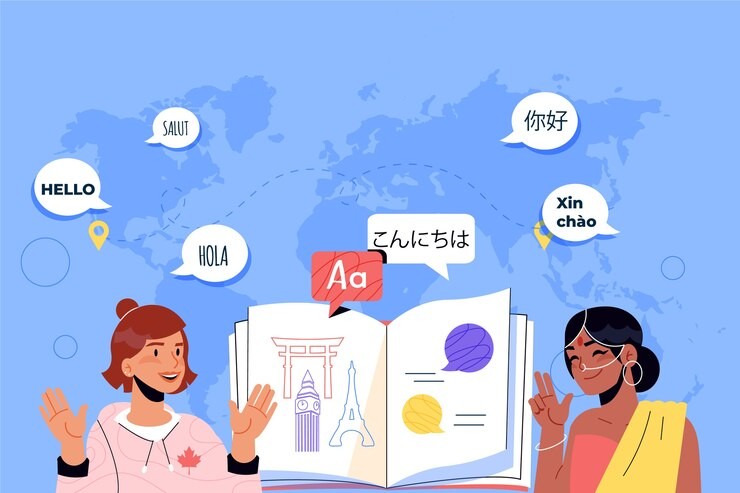Native Arabic to Hindi translators play a crucial role in accurately translating content between the two languages. Their deep understanding of both cultures ensures precise and culturally appropriate translations.
Qualifications and expertise
Native Arabic to Hindi translators possess a wide range of qualifications and expertise in the translation field. They are fluent in both languages and have a deep understanding of the nuances and grammar rules of each. Additionally, they have extensive knowledge of the cultures and traditions associated with Arabic and Hindi, enabling them to accurately convey the intended meaning and context of the source text. Their expertise also includes knowledge of specialized terminology and subject-specific terminology, ensuring accurate and precise translations in various industries.
Cultural nuances and language accuracy
Cultural nuances and language accuracy are crucial in Arabic to Hindi translation. Native translators understand the intricacies of both cultures, ensuring precise and culturally appropriate translations. They preserve the essence and meaning of the source text with accuracy.
Language proficiency and cultural knowledge are essential skills for Arabic to Hindi translation. Attention to detail and precision are also necessary to ensure accurate and meaningful translations.
Language proficiency and cultural knowledge
Language proficiency and cultural knowledge are crucial for Arabic to Hindi translation. Translators must have a deep understanding of both languages’ grammar, vocabulary, and idiomatic expressions. Additionally, cultural knowledge helps in accurately conveying the intended meaning and cultural nuances of the source text. Native translators with these skills ensure a high level of accuracy and precision in their translations.
Attention to detail and precision in translation
Attention to detail and precision in translation is paramount for native Arabic to Hindi translators. They meticulously analyze the source text, ensuring accurate meaning and grammatical correctness in the translated output. They pay careful attention to every word, phrase, and sentence structure to maintain the integrity of the original message. Their commitment to precision guarantees a high-quality translation that captures the essence of the source text.
Challenges in Arabic to Hindi Translation
Arabic to Hindi translation presents several challenges. Dialect variations and regional differences make it necessary for translators to be familiar with different language nuances. Additionally, maintaining the appropriate tone and context can be complex.
Dialect variations and regional differences
Dialect variations and regional differences pose challenges in Arabic to Hindi translation. Native translators with knowledge of specific dialects and regional nuances ensure accurate interpretation of context and meaning.
Complexities in maintaining tone and context
Translating from Arabic to Hindi requires maintaining the appropriate tone and context, which can often be challenging. The nuances of expression and cultural references must be accurately conveyed to ensure the intended meaning is understood. Native translators are well-equipped to handle these complexities and provide precise translations.
Best Practices for Native Translators
Native translators should conduct thorough research and use reliable reference materials to ensure accurate translations. Effective collaboration and communication with clients are essential to understanding project requirements and delivering satisfactory results.
Research and reference materials
Native translators should conduct thorough research and utilize reliable reference materials to ensure accurate translations. They rely on dictionaries, glossaries, and industry-specific terminology databases to maintain precision and quality in their work.
Collaboration and communication with clients
Native translators understand the importance of effective collaboration and communication with clients. They engage in open and frequent conversations to clarify project requirements, address any concerns, and ensure client satisfaction.
Advantages of Hiring Native Translators
Native translators bring a range of advantages to the table. Their deep understanding of the Arabic and Hindi languages allows for enhanced accuracy and understanding during the translation process. Additionally, native translators possess cultural sensitivity and localization skills, resulting in translations that resonate with the target audience.
Enhanced accuracy and understanding
Native translators bring enhanced accuracy and understanding to the translation process. Their deep knowledge of Arabic and Hindi ensures accurate and precise translations. They have a thorough understanding of linguistic and cultural nuances, resulting in translations that effectively convey the intended meaning.
Cultural sensitivity and localization
Cultural sensitivity and localization are key strengths of native translators. They understand the cultural references and adapt translations to resonate with the Hindi-speaking audience. This ensures that the translated content is culturally appropriate and relatable.
Conclusion
The impact of native Arabic to Hindi translators is significant, as they ensure accurate and culturally appropriate translations. In the future, the demand for native translators will continue to rise as businesses strive to reach diverse audiences effectively.
Impact of native Arabic on Hindi translators
The impact of native Arabic to Hindi translators is significant. They ensure accurate and culturally appropriate translations, helping businesses effectively reach diverse audiences. The demand for native translators will continue to rise in the future.
Future trends in the translation industry
The future of the translation industry is shaped by advancements in technology, such as AI and machine learning. These tools will assist translators in improving efficiency and accuracy. The demand for translation services is expected to rise as globalization continues to expand. Additionally, there will be a greater focus on specialized translations in fields like medical, legal, and technical industries. As the world becomes more interconnected, the need for native translators proficient in multiple languages will also increase. Continuous professional development and staying updated with the latest industry trends will be crucial for translators to thrive in the future.


